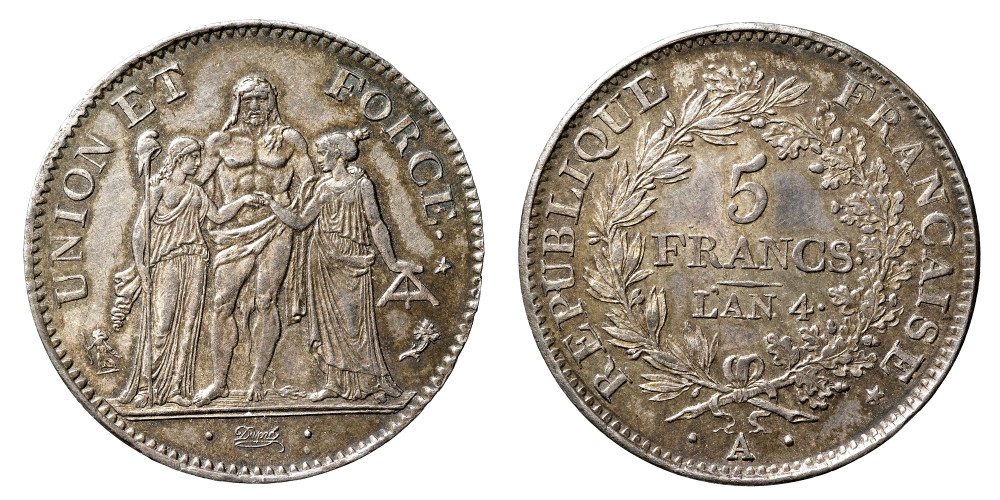Ah! Thinking about it, I think I know why "30 sous" refers to the 25 cent coin in Québec! It has nothing to do with the English £sd system.
The reason is this (Wiktionary totally clueless here): like I've said in a previous post, the "écu d'argent" (main silver coin used in the Kingdom of France) was replaced after the French Revolution by the 5 franc silver coin (itself the basis of the Latin Union, so all the 5-pesos, 5-Belgian franc, 5 Swiss franc, 5 Greek drachma, 5 Italian lira, etc silver coins used by all the member countries of the Latin Union were based exactly on the 5 French franc silver coin, itself based on the ancient "écu d'argent").
This écu was worth 6 French £, i.e. 120 sous (but due to currency appreciation it was converted into 5 francs in 1795).
This écu d'argent coin (later 5 franc coin of the Latin union) was equivalent to the silver dollar of Mexico, which became the basis of the US dollar. Before the French Revolution, 1 French écu d'argent was essentially converted for 1 Mexican dollar. In the 19th century and until 1914, 5 franc/lira/drachma/peseta/etc silver coin = 1 silver US dollar.
When the US (and then Canada) adopted decimalization in the 19th century, naturally 25 cents was 1/4 of a dollar, i.e. 1/4 of the old French écu d'argent, therefore 1/4 of 120 sous in the old French £sd system, i.e. 30 sous. And, voilà! That's where the "30 sous" comes from.
What's fascinating is there was no "30 sous" coin in ancient France (there was the écu coin which was worth 120 sous, and the 1/2 écu coin which was worth 60 sous), but apparently people in French Canada were so used to it that a quarter of a silver dollar was naturally worth "30 sous" to them (i.e. a quarter of an old silver écu).
That's the écu d'argent that was the main French silver coin at the time of British conquest:

And that's the 5 franc silver coin that replaced it in 1795 ("L'an 4" = Year 4 of the Republic, i.e. 1795):

Itself the basis of all the 5 franc/lira/drachma/pesetas/etc silver coins of the Latin Union (a union that the UK and its empire refused to join):

And the quarter silver dollar, similar to the 1/4 of an écu d'argent (hence why 30 sous in French £sd = 25 cents in decimalized dollar system):





